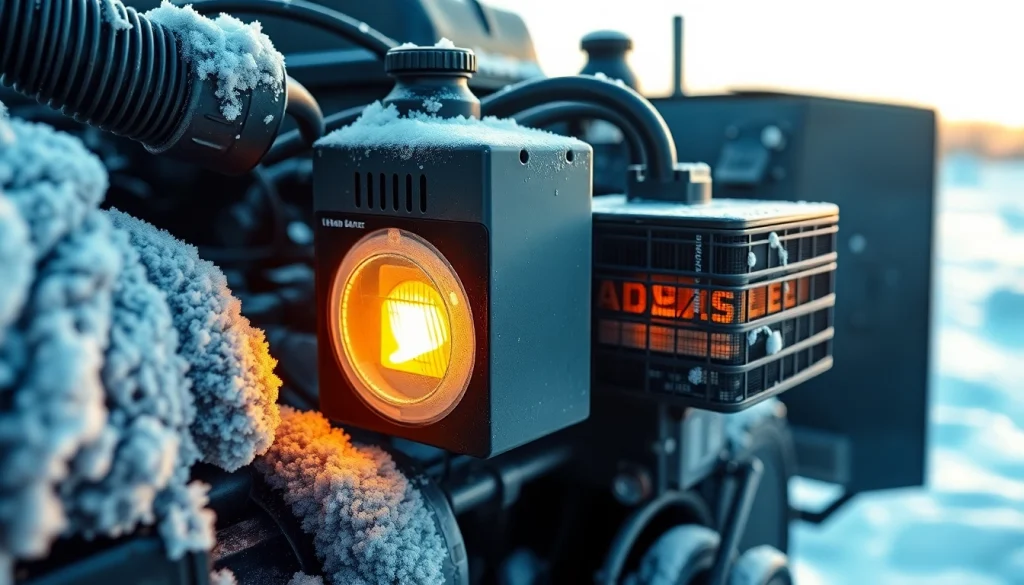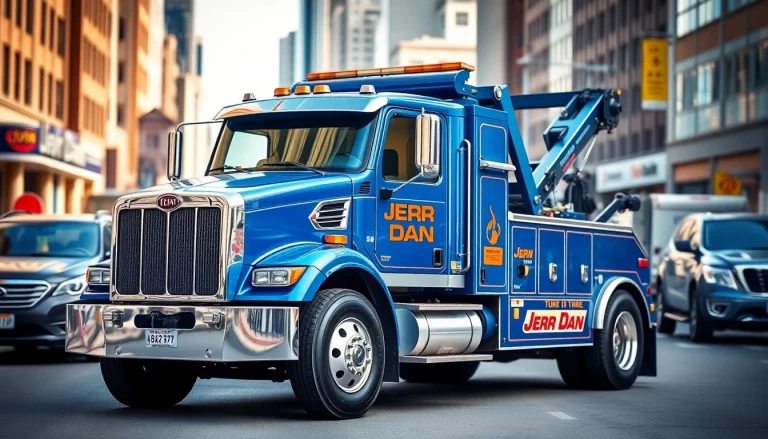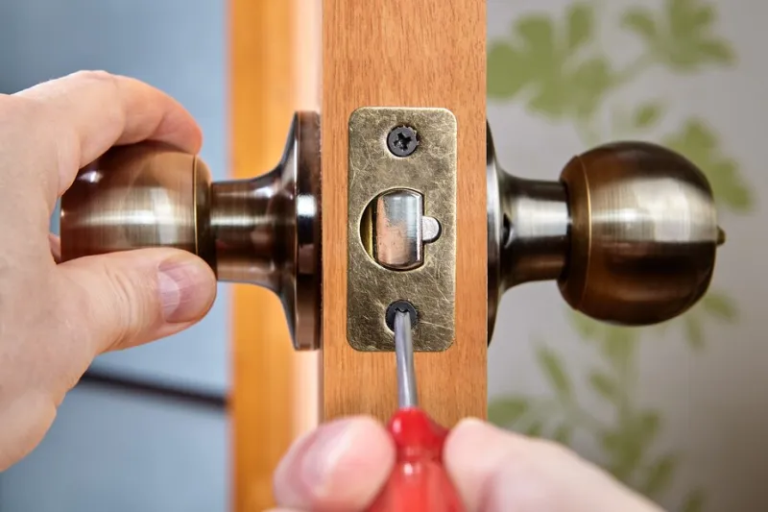
Understanding Diesel Block Heaters
What is a Diesel Block Heater?
A diesel block heater is an essential tool for diesel engine owners, particularly in colder climates. It is an electrical device designed to warm the engine and its components when the vehicle is not in use. By maintaining a higher temperature within the engine block, the block heater allows for easier starts and smoother operation in frigid conditions. This device is particularly valuable for those who rely on diesel-powered vehicles, as diesel engines are more challenging to start in cold weather compared to gasoline engines. You can find various diesel block heater systems tailored to meet different engine specifications and requirements.
How Diesel Block Heaters Work
Working on the principle of heat transfer, a diesel block heater typically operates by warming the engine’s coolant or engine oil. Different designs include:
- Immersion Heaters: These are installed directly into the engine block, allowing immediate heat transfer to the coolant flowing through the block.
- Coolant Heaters: These types are designed to heat the coolant while it is still contained within the system, ensuring that when the engine is started, warmth already exists throughout the system.
- Oil Pan Heaters: In this case, the heater is mounted on the oil pan to help keep the engine oil at an optimal viscosity for easier starting.
Regardless of the type, block heaters are generally powered by electricity, utilizing resistance heating to transfer warmth directly into the engine system. This process reduces wear and tear on engine components and allows the engine to reach operational efficiency more quickly.
Key Benefits of Using a Diesel Block Heater
Utilizing a diesel block heater offers several advantages that can significantly impact engine performance and longevity:
- Improved Starting Reliability: With the engine preheated, starting becomes much more reliable, reducing the strain on batteries and starters during cold weather.
- Enhanced Engine Efficiency: Preheating the engine leads to quicker oil flow, optimizing lubrication during startup and preventing costly damages.
- Reduced Emissions: A warmed engine burns fuel more efficiently, producing fewer emissions, which is an essential consideration for environmentally conscious owners.
- Extended Engine Life: Regular use of a block heater can decrease wear on engine parts, extending the engine’s life and improving overall performance.
When to Use a Diesel Block Heater
Optimal Temperature Ranges for Usage
Knowing when to use a diesel block heater is critical for maximizing its benefits. Typically, it is recommended to plug in the heater when outdoor temperatures dip below 20 degrees Fahrenheit (-6 degrees Celsius). Some models can even be beneficial at temperatures slightly above freezing, especially for older diesel engines prone to starting difficulties. The best practice is to plug the heater in a few hours prior to starting the engine; between two to four hours is sufficient in most cases.
Common Myths and Misconceptions
Despite their benefits, several misconceptions about diesel block heaters persist. Common myths include:
- Myth 1: “Block heaters are only for extremely cold weather.” While they are crucial in low temperatures, any temperature below 50°F can make starting a diesel engine more challenging.
- Myth 2: “Using a block heater can damage the engine.” When used properly, block heaters provide essential warmth that protects engine components.
- Myth 3: “It’s okay to leave a block heater plugged in all the time.” Regularly plugging it in for extended periods can lead to potential issues; typically, 2-4 hours of preheating will suffice.
Real-life Scenarios Requiring a Block Heater
Scenarios where a diesel block heater proves invaluable may include:
- Commercial Drivers: Long-haul truck drivers operating in colder states depend on block heaters to ensure reliable performance throughout their journeys.
- Heavy Equipment Users: Construction sites in winter frequently utilize diesel-powered machinery where reliable starts are crucial for productivity.
- Farmers: In agricultural zones, farmers often rely on diesel tractors during the cold months, making block heaters a necessity for efficiency.
Installing a Diesel Block Heater
Step-by-Step Installation Guide
Installing a diesel block heater can be a straightforward process if you follow these steps:
- Gather Your Tools: Ensure you have the appropriate tools, including wrenches, electrical tape, and a drill if needed.
- Locate the Installation Site: Refer to your vehicle’s service manual for the recommended placement of the block heater.
- Drill if Necessary: If your diesel engine doesn’t have a dedicated hole for the heater, you may need to drill a hole.
- Secure the Heater: Follow instructions to install it tightly to prevent any coolant leaks.
- Connect the Electrical Wiring: Safely connect the heater to an electrical outlet, ensuring a secure connection.
Tools and Materials Needed
Before beginning the installation, you’ll require:
- Diesel block heater
- Wrenches and pliers
- Drill (if necessary)
- Electrical tape
- Safety goggles and gloves
Safety Precautions to Consider
Before proceeding with the installation, ensure you take the following safety precautions:
- Always disconnect the vehicle’s battery to prevent shock or short circuits.
- Wear protective gear such as gloves and goggles to safeguard against potential injuries.
- Keep your workspace well-ventilated and clear of debris.
Maintaining Your Diesel Block Heater
Routine Maintenance Checks
Regular maintenance of your diesel block heater is essential for its longevity and performance. Consider the following checkpoints:
- Inspect the Power Cord: Regularly check for fraying or wear, and replace it if any damage is found.
- Check for Leaks: Look around the heater for any signs of coolant leaks, which can indicate improper installation or damage.
- Maintain Cleanliness: Keep the heater and surrounding area clean from debris that may interfere with its operation.
Troubleshooting Common Issues
If you experience problems, here are a few common troubleshooting tips:
- Heater Not Working: Ensure it is plugged in. Check the electrical connection for any signs of damage or loose interfaces.
- Engine Still Won’t Start: It could be a battery issue or something unrelated to the block heater, such as fuel quality.
- Unusual Noises: Check to see if the heater is securely installed; rattling could indicate loose fittings.
Signs Your Block Heater Needs Replacement
If you notice any of these signs, it may be time to replace your block heater:
- Frequent starting issues even after using the heater
- Visible wear or damage to the unit or its electrical components
- Increased engine wear or sounds that weren’t present before
Comparative Analysis: Best Diesel Block Heaters on the Market
Top Brands and their Features
Several manufacturers produce quality diesel block heaters, each with unique features that cater to different needs:
- ZEROSTART: Known for robust designs suitable for extreme conditions; they offer different wattages for various engine sizes.
- Bergquist: Renowned for their oil pan heaters which are effective in keeping the oil warm.
- Patriot: Offers high-wattage immersion heaters that provide quick preheating to get engines running smoothly.
Cost vs. Performance: Finding Value
When purchasing a diesel block heater, consider the balance between cost and performance. Higher-priced models often offer better efficiency and durability, which can lead to cost savings in maintenance and fuel efficiency over time. It’s crucial to analyze the wattage, installation complexity, and specific application to ensure you’re getting the best value for your needs.
User Reviews and Experiences
Feedback from users can provide insight into performance and longevity. Generally, positive reviews highlight better starting experiences, enhanced performance in cold weather, and overall satisfaction with the installation process. However, potential buyers should remain vigilant about brands that show consistent negative feedback regarding heat efficiency or durability.






